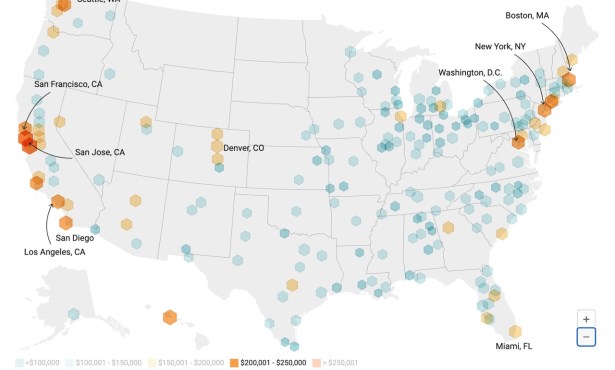Goleta Gets a Do-Over
Proposed General Plan Changes Unveiled

Negotiations over Goleta’s future, which have so far taken place out of the public eye, were ushered into the spotlight before a packed house at the Goleta City Council chambers on the evening of 3/5. Developers, affordable housing advocates, and neighborhood preservationists all weighed in on potential changes to the city’s original General Plan in the wake of last November’s election, when voters tossed from office three of Goleta’s founding councilmembers.
When city planning chief Steve Chase finally emerged onto the dais, he pronounced to the crowd, “Our world changed on November 1.” That was the day the city finally adopted its first General Plan, and half a dozen developers rushed to file legal challenges against it. They claimed that although the plan ostensibly allows commercial and residential development, its specific policies render that largely unfeasible. This alleged internal inconsistency opened the city to landowners’ demands for compensation, according to the would-be developers’ lawyers. Chase’s specific recommendations for altering the General Plan were “reflective” of closed-session settlement discussions with those developers, he said. “This [public hearing] marks the transition of our efforts from closed to open session,” Chase said. “It creates transparency.”
Chase submitted two lists of changes for review by the council and the public. The first list contained 28 wording changes, all authored by Chase and consisting mostly of substituting the word “shall”-as in “Approvals of all new development shall require adherence to high environmental standards”-with “should.” Other changes would reduce the percentage of new homes offered at affordable rates from 55 to 20 percent, and would allow opportunities for the development of big-box outlets-large retail stores similar in size to Costco-which the original plan specifically discouraged.
The second list that Chase offered up was authored by one of the litigants, Bacara Resort and Spa, which plans to expand its existing operations in Goleta. Among its 47 suggested changes, Bacara would rewrite the General Plan to allow time-share condos. Where the current General Plan demands public coastal access through developments such as the Bacara “24 hours a day and seven days per week,” the Bacara would replace that language with the phrase “sunrise to sunset.” In numerous places, it would change the word “preserve”-as in “preserve Goleta’s existing open space areas”-to “protect.” Chase recommended that 32 of the Bacara’s proposed changes be adopted. Under California state law, amendments to the General Plan are subject to a process of required hearings and environmental analysis. Chase recommended that five of Bacara’s changes should be formally proposed by Bacara rather than by the city because they were entirely specific to Bacara’s plans. The developers, Chase said, should “carry their own water bags.”
Representatives of all the litigants against the city’s General Plan were on hand to praise Chase’s work, although some felt it did not go far enough. In particular, owners of the 250-acre Bishop Ranch property were disappointed that the staff had not recommended changing the zoning designation of their land from agricultural to one that would permit development. Bishop Ranch representatives were joined by those supporting such plans for the property-including homes, ballfields, and public trails. However, the Bishop Ranch contingent was hopeful that once the plan amendment process was underway, their request would be added to the list of proposals ultimately to be decided by a City Council now friendly to the idea of allowing development on Bishop Ranch and other agriculturally zoned parcels not currently farmed.
Among those celebrating Chase’s suggestion that the city abandon its 55 percent affordable requirement for new condo developments was Jennifer Bigelow McGovern, coordinator of the Goleta Housing Leadership Council. The GHLC has been agitating for more housing within financial reach of Goleta’s workforce; but the 55 percent inclusionary requirement made all new housing development unfeasible for developers, according to McGovern and others. “Fifty-five percent of zero is zero,” agreed Roy Donkin, president of the Interfaith Initiative of Santa Barbara County. Others disagreed with that mathematical analysis. Goleta resident Rich Foster argued that the 1400 new homes at Bishop Ranch will still not be affordable to most Goletans but will create more low-paying jobs in the community. “It would be better to build nothing in terms of solving the housing crisis,” said Foster, “than it would be to lower the inclusionary level.”
After hearing from almost 40 speakers, the council instructed staff to return April 16 with a timeline, cost estimates, and suggestions for how many public hearings to hold. Councilmember Jonny Wallis voted against initiating the amendment process, saying the other councilmembers had not assured her that they would solicit the opinions of Goleta residents as extensively as the first council and staff had done in crafting the original plan.


